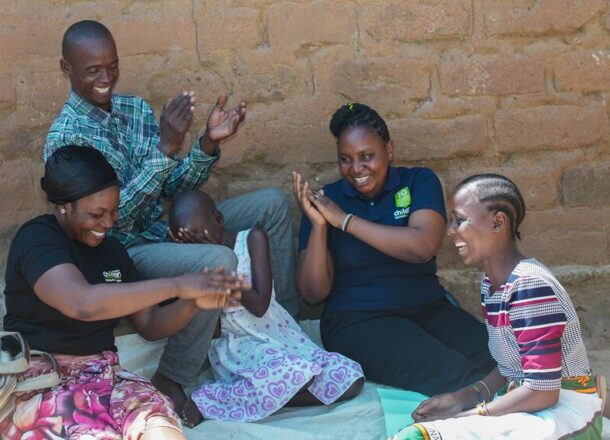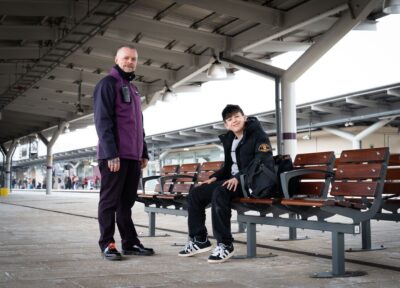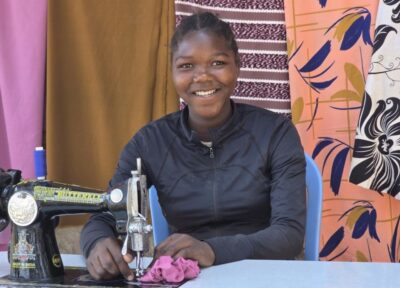
CrossCountry donates £10,000 to Strengthen Railway Children’s Youth Platform
CrossCountry’s contribution is helping expand opportunities for young people through Railway Children’s Youth Platform and Youth Ambassador Project.

The new Global Charter on Children’s Care Reform is a powerful step toward a world where every child can grow up in a safe, loving home.
The UK Foreign and Commonwealth office has launched a new international charter setting out new standards for care systems. Here’s what this means for street-connected children.
Author: Con Enzler | Date: 13th October 2025
We believe that every child deserves a safe, loving family. This isn’t just our mission—it’s the fundamental right of every child.
The UK’s Foreign, Commonwealth & Development Office (FCDO) has launched a powerful new Global Charter on Children’s Care Reform, setting out a new standard for care systems.
We’ve joined hundreds of organisations and a growing number of national governments, in signing this charter to reaffirm our commitment to advocating for children to be placed in safe, nurturing family care.
This is a landmark moment that aligns with our mission to ensure every child grows up in a safe family-based environment.
The charter’s core principles are clear:
These principles are not new to us – they’re at the heart of our work.
Institutions can cause significant harm to a child’s development. We know the best place for a child is always within a family, whether it’s their own or an alternative family that can provide the love and care they need.
Supporting family reintegration over institutional care has always been a key principle of our work.
When a child has no option but to survive on the streets, we know that very often things have gone badly wrong at home. There are many reasons that drive family separation, including family breakdown, violence and abuse, and poverty.
Children in these situations end up living on the streets, being trapped in exploitative situations, or they end up in institutions.
That’s not good enough for us. So we work hard to reunite children with their families and support them to address whatever issues caused the separation in the first place.
But our first priority is for children to be safe and loved, so if issues at home are too challenging, we’ll find a relative or friend who can step in. We are proud that about a third of the families we support in Tanzania and many of those we support in India, are kinship carers.
Though this therapeutic and practical approach, we help ensure children feel safe, nurtured and supported as part of a family home.
We know that our family-first approach creates the best outcomes for children on the streets, and for all children having to survive outside of family care, including the millions of children in institutions across the world.
That’s why we are delighted to endorse the Global Charter.
For over a decade, Railway Children Africa has been a leader in Tanzania’s care reform journey.
We have worked alongside the Tanzanian government in the National Alternative Care Technical Working Group to help develop a national roadmap for care reform.
This work ensures that we are not just helping one child at a time but are fundamentally changing the system for generations to come. The FCDO charter now gives this work a powerful new voice and a global platform.


CrossCountry’s contribution is helping expand opportunities for young people through Railway Children’s Youth Platform and Youth Ambassador Project.

With thousands expected to travel by train this festive season, Railway Children, LNER and safeguarding partners have joined together to raise awareness of vulnerability on the railway and help protect children at risk.

LNER colleagues completed intensive Railway Children safeguarding training to learn how to protect children at risk.

Read our guide to claiming your compensation and learn how to easily donate it to vulnerable children.

Martha’s story shows the amazing change girls can create when they’re given the chance.

If the news is getting you down, you’re not alone. Here are some tips to help you cope.